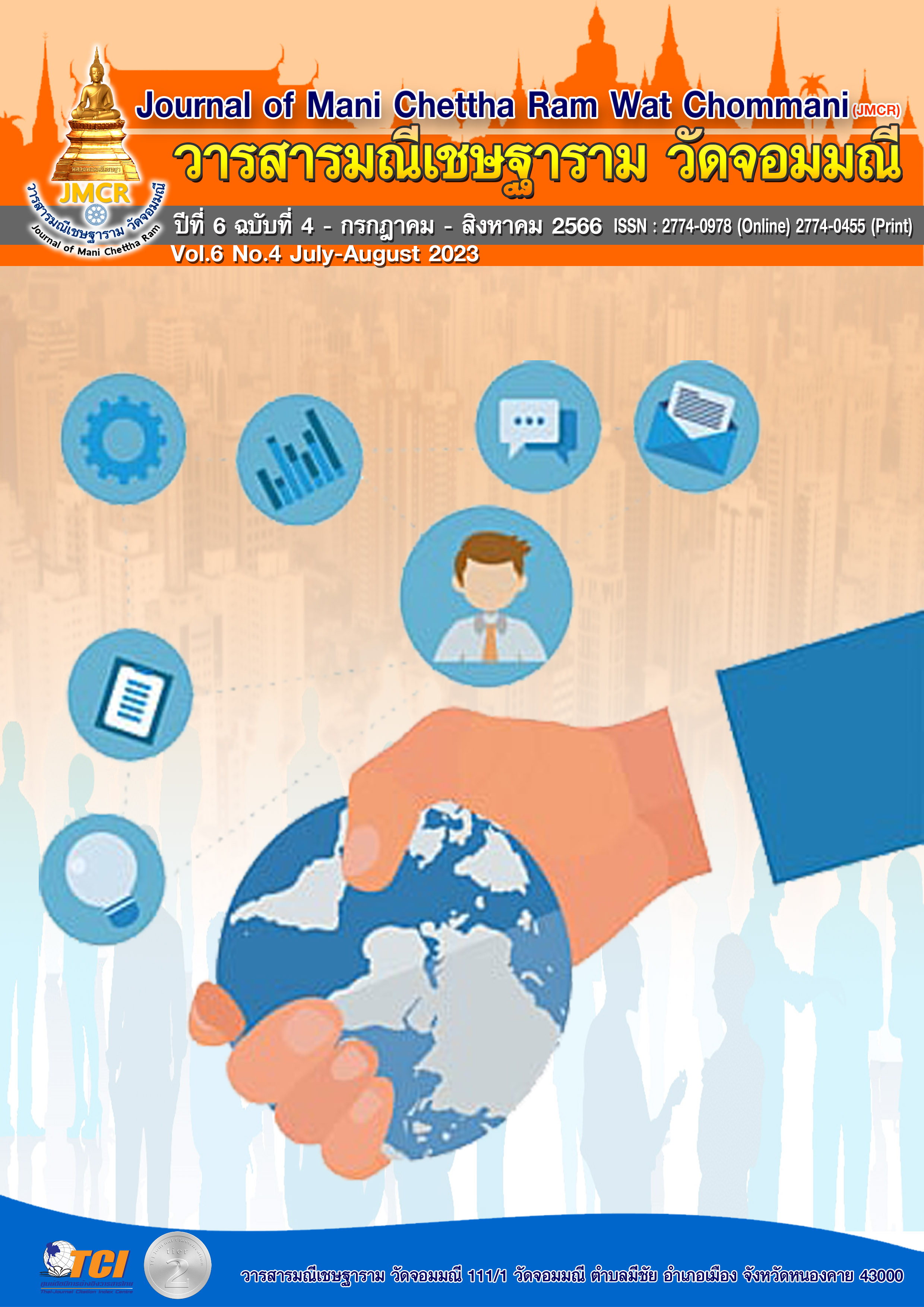MANAGEMENT FOR SUSTAINABLE TOURISM
Keywords:
Management, Tourism, SustainabilityAbstract
Academic article on sustainable tourism management The objective is to study management for sustainable tourism development. Ready to present ideas, methods and guidelines for sustainable tourism management in various forms. through the perspective of tourism management concepts which consists of 2 aspects: management of conservation of tourist attractions; and tourism management and sustainable tourism concepts, including economic, social, cultural and environmental sustainability. so that tourist attractions can be applied in accordance with the context and potential of such tourist attractions as appropriate Including to suit the rapidly changing situation in modern times. As a result, tourist attractions can improve tourism management to be more efficient and effective. This will lead to raising the level of tourism management to be sustainable in the future.
The study found that to manage tourism to achieve sustainability. There must be a conservation management of tourist attractions and tourism management by having to supervise and supervise the operation of the management of tourist attractions Integrated with the concept of sustainable tourism, including economic, social, cultural and environmental sustainability. in order to develop sustainable tourism management in the future
References
กรมการท่องเที่ยว. (2558). การบริหารจัดการแหล่งท่องเที่ยว. กรุงเทพมหานคร: สำนักพัฒนาแหล่งท่องเที่ยว กรมการท่องเที่ยว.
กรมการท่องเที่ยว. (2559). คู่มือการประเมินมาตรฐานคุณภาพแหล่งท่องเที่ยวทางวัฒนธรรม. พิมพ์ครั้งที่ 2. กรุงเทพมหานคร: สำนักพัฒนาแหล่งท่องเที่ยว กรมการท่องเที่ยว.
กระทรวงการท่องเที่ยวและกีฬา. (2562). รายงานฉบับสมบูรณ์ โครงการเพื่อการส่งเสริมการท่องเที่ยวอย่างยั่งยืน. เรียกใช้เมื่อ 17 กรกฎาคม 2566 จาก https://mots.go.th/ewt_dl_link.php?nid=12288.
ชลลดา แสงมณี ศิริสาธิตกิจ. (2555). การพัฒนารูปแบบการท่องเที่ยวตลาดน้ำภาคใต้เพื่อการพัฒนาที่ยั่งยืน. ใน วิทยานิพนธ์ปริญญาปรัชญาดุษฎีบัณฑิต สาขาวิชาพัฒนาศึกษา. มหาวิทยาลัยศิลปากร.
ทินวัฒน์ แสงศิลา และเขมณัฐ ภูกองไชย. (2563). แนวทางการบริหารจัดการแหล่งท่องเที่ยวหาดสวนหิน บ้านดงคำโพธิ์ ตำบลปลาโหล อำเภอวาริชภูมิ จังหวัดสกลนคร. วารสารปัญญาปณิธาน, 5(1), 189-202.
พิมพ์ลภัส พงศกรรังศิลป์. (2561). การพัฒนาและบริหารจัดการการท่องเที่ยวอย่างยั่งยืนแบบบูรณาการของเกาะพะงัน จังหวัดสุราษฎร์ธานี. ใน รายงานฉบับสมบูรณ์ สนับสนุนโดยสำนักงานคณะกรรมการวิจัยแห่งชาติ (วช.) และสำนักงานกองทุนสนับสนุนการวิจัย (สกว.).
ศรัณย์ สัธนานันต์. (2566). การบริหารจัดการการท่องเที่ยวให้มีความยั่งยืน. วารสารมณีเชษฐาราม วัดจอมมณี, 6(4).
ศูนย์วิจัยและสนับสนุนเป้าหมายการพัฒนาที่ยั่งยืน. (2564). การท่องเที่ยวอย่างยั่งยืน. เรียกใช้เมื่อ 17 กรกฎาคม 2566, จาก https://www.sdgmove.com/2021/07/31/sdg-vocab-41-sustainable-tourism/
สนิท บุญราศี. (2565). รูปแบบการจัดการต่อการพัฒนาการท่องเที่ยวเชิงนิเวศอย่างยั่งยืนของชุมชนลำพะยา อำเภอเมืองยะลา จังหวัดยะลาในอนาคต. ใน วิทยานิพนธ์ดุษฎีบัณฑิต มหาวิทยาลัยราชภัฏยะลา.
Shirley, E. (1992). Beyond the green horizon, principles for sustainable tourism. Surrey: Word Wide Fund for Nature (WWF).
Swarbrooke, J. & Horner, S. (1999). Consumer Behavior in Tourism. Oxford: Butterworth Heinemann.
World Tourism Organization. (1998). Guide for Local Authorities on DEVELOPMENT SUSTAINABLE TOURISM. Madrid: Author.




